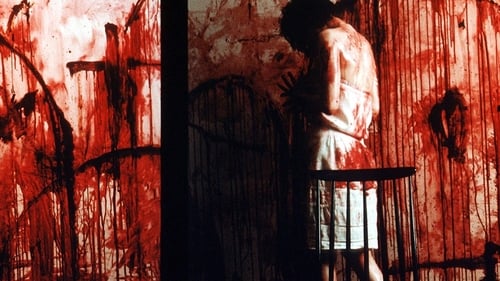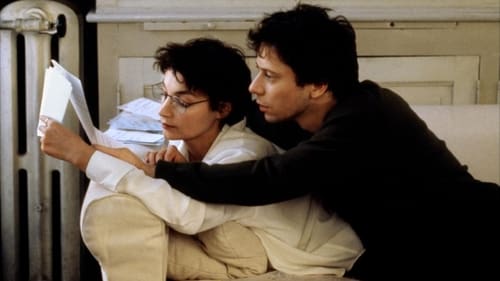
Malécot
Shane and June Brown are an American couple honeymooning in Paris in an effort to nurture their new life together, a life complicated by Shane’s mysterious and frequent visits to a medical clinic where cutting edge studies of the human libido are undertaken.

Patiente 1
Such an inconsequential event - the unfortunate purchase of a package of cling film - reveals the character and behavior of a small group of individuals caught up in the chaos of today's society. Though it creates arguments and inner questioning, this event - and its various consequences - also creates bonds.

Director
The questioning of Jewish heritage and identity via the portrait of a diversed family, across Belgium and the United States.

Le Mérou
Paul Dedalus is at a crossroads in his life. He has to make several decisions; should he complete his doctorate, does he want to become a full professor, does he really love his long-standing girlfriend, or should he re-start with one of his other lovers?

In 1930s Poland Christian boy Ivan goes to live with a Jewish family to learn a trade. He becomes friends with Abraham, the son of the family. However, anti-Semitism is rife in their environment, and they flee to escape an upcoming conflict. Journeying together, they demonstrate their inseparability.

Louise
Emma has been happily married to Charles, a hardworking journalist, for over ten years. They have a son, and are considering having another child when she learns that she is both pregnant and HIV-positive at a time when Charles is away. As Emma has never used drugs or slept around, and has never had a blood transfusion, there can only be one source for her infection: her absent husband. Shocked to the core by this turn of events, she goes through his things and finds an address book with the names of many women in it. Determined to discover what has been going on, she begins contacting every name in the book. She continues her investigations even after her husband, whom she confronts over this, returns.

Soriba Samb (Oumar Diop Makena) is a Senegalese who has just received a much sought after internship to study filmmaking in Paris. In this story, Soriba heads to Paris, accompanied by the five-year old son of a friend who he believes to be still living in Paris. On arrival he struggles to find the boy’s father. In addition to coping with his new internship, Soriba has to also spend time tracking down the boy’s father ‘Issa’. Soriba eventually finds ‘Issa’ but only to discover that he is running a prostitution ring and actually has no intention of leaving Paris. This is deeply disturbing to Soriba as the fate of the young boy now hangs squarely in the balance. Soriba sets out to change this and invokes the spirits of his ancestors to transform ‘Issa’s’ wayward living so he can care for his son and return to Senegal.

"Miéville captures a moment of disquieting intimacy amid the bustle of a parade." - BAM

In a specialized, hermetic drama about love won and lost, not necessarily by the same individuals, novice director Christine Laurent has focused on the backstage melodramas of an opera company. The conductor for an upcoming performance of the Marriage of Figaro has his mind and heart on other matters -- an entrancing diva who keeps him enraptured with her presence and voice. In the meantime, he finds fault with his cast members who cannot, of course, measure up to the woman of his dreams. As singers encounter one problem or another, it is clear that something has to be done about the conductor. Director Laurent designed costumes for both theater and opera, giving her some insight into the venue.

Marianne
Orgon is a man of property duped by the false piety of the penniless Tartuffe. Orgon takes him into his house, believing him a paragon of virtue. Orgon orders his daughter to reject her fiancé and marry Tartuffe. First Dorine, the family servant, tries a strategy to avert the marriage; then Orgon's son tries his hand. They anger Orgon, and to prove paternal power, he disinherits his son and makes Tartuffe his heir. Next Orgon's wife tries to bring her husband insight, a stratagem that partially backfires. With the bailiff at the door ordering Orgon to vacate his own home and with Tartuffe at court to prove Orgon's a traitor, all seems lost.

Samy Szlingerbaum made his film Dakh-Brisel (Brussels-Transit) in 1980, thirty years after any Yiddish feature film had been produced. Szlingerbaum felt that the only way he could relate the story of his family’s search for refuge after World War II was in Yiddish. This Belgian-based filmmaker, deeply impacted by New York experimental cinema, gives us a masterful blend of powerful drama and stark documentary to tell the story of postwar European Jewry. Home, as it had been, no longer exists, and all that Samy’s family wants is a place in which to sink new roots.









